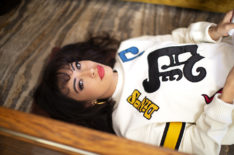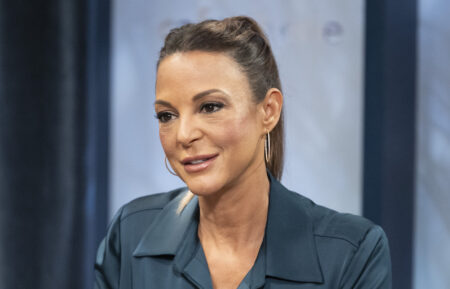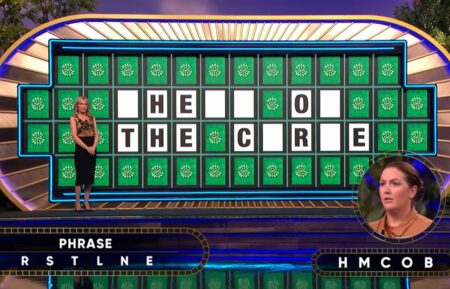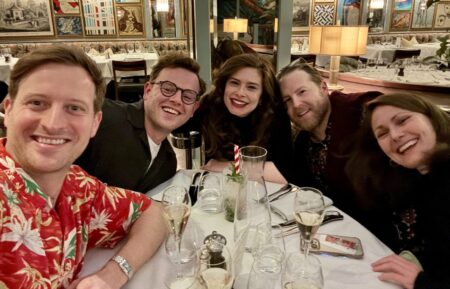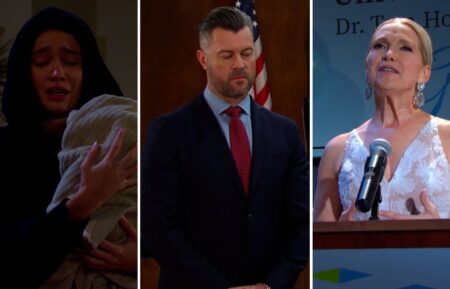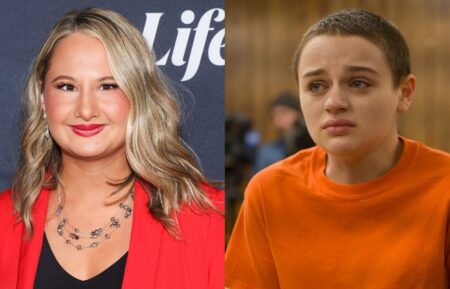‘Selena: The Series’ Creator on the Singer’s Journey, & Latinx Representation on TV
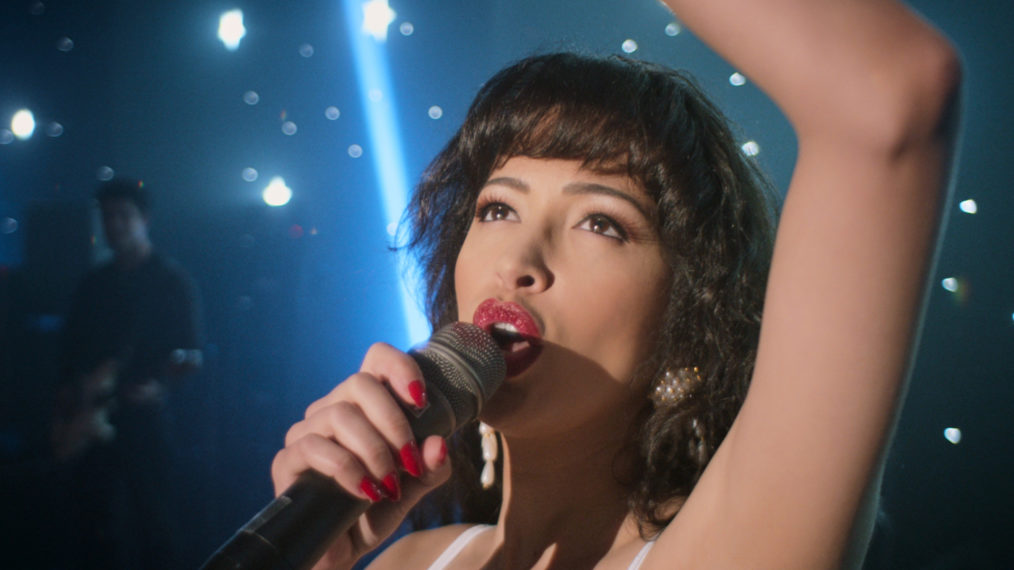
Q&A
It’s been 25 years since singing sensation/Grammy-winner Selena Quintanilla was murdered at age 23 by the former head of her fan club. But her music, performed with her family band, Selena y Los Dinos, and cultural impact continue to be celebrated.
Now, her coming-of-age story will be seen on the small screen when Selena: The Series premieres on Netflix December 4. It follows the young Mexican-American singer (played by The Walking Dead‘s Christian Serratos) in Texas as she transforms into the reigning “Queen of Tejano,” and includes a detailed look at the Quintanilla family’s sacrifice and struggle to realize her dream.
Before its release, TV Insider sits down with Moises Zamora, the series’ creator, co-sh0wrunner and executive producer, to talk about seeing his vision come to life.
What were some aspects of Selena’s life that haven’t been covered before that you wanted to tackle?
Moisés Zamora: A goal is to offer authentic Mexican-American stories that expand the narrative out there right now. This is an opportunity for me to make the argument that a Mexican-American dream is an American dream.
I wanted it to be something inspirational and give an inside look at what the family was going through. Something a lot of people don’t know is all the places the family went and the music they were developing. I really love how they traveled all across the United States all the way to Idaho, Michigan, and D.C.

Photo: Dima Otvertchenko
They put in the work out of necessity because that is how they were making their living. Also, you have this father, Abraham (Ricardo Chavira), who really, truly believed in his kids and their talent, and pushes them to step up when it’s needed, and they do.
It’s close to my heart because my whole family is filled with Mexican immigrants. They work so hard and make so many sacrifices to give us the opportunity to succeed. My parents didn’t really understand what it meant to be a writer. “Isn’t that a hobby?” It is having to prove to them it’s a profession that I’m getting paid for. Can you imagine? You see those parallels of being Mexican and American at the same time.
Both the “real” Abraham and Selena’s sister Suzette were involved in the series. What did their involvement mean to the production?
When it came to getting those anecdotes, they had a lot of things we could pick and choose. We did an enormous amount of research because this is the late 1980s and early 1990s. One of the things that Abraham shared with us was how he had to handle multiple jobs: dad, manager, [and more]. A lot of those anecdotes made it to the screen.
At the end of the day, what is interesting is you empower your kids and give them the space to grow and eventually make their own decisions. [But] you might not be happy with the decisions they’re making. I think that comes into play and creates a lot more tension, because [Selena] is coming into her own and making her own choices. Then for him it becomes, “Do I trust her? Or is she still my little girl?” It’s a matter of how you deal with it.
Christian Serrator really lights up the screen. Why was she the right Selena in your eyes?
One of the things I learned about Selena through my research and watching the videos and interviews from her contemporaries and her family was this spark [she had]. A generous spirit — someone who was kind and respected and grateful. She stayed two hours after every show to interact with fans. She valued what she was doing and the people who came to see her. To find someone with that kind of charm and playfulness was going to be tricky. When I met Christian I was already a fan of her work and loved The Walking Dead. She showed up at lunch in red lipstick, channeling Selena, and I was convinced she had that spark that Selena did — her charm and sincerity.
Everyone was excited about her, but we knew we needed to have an arduous casting process to make sure we turned every rock and exhausted our resources. She gave it her all. She earned and deserved that role. It was emotional. People were tearing up at her audition.
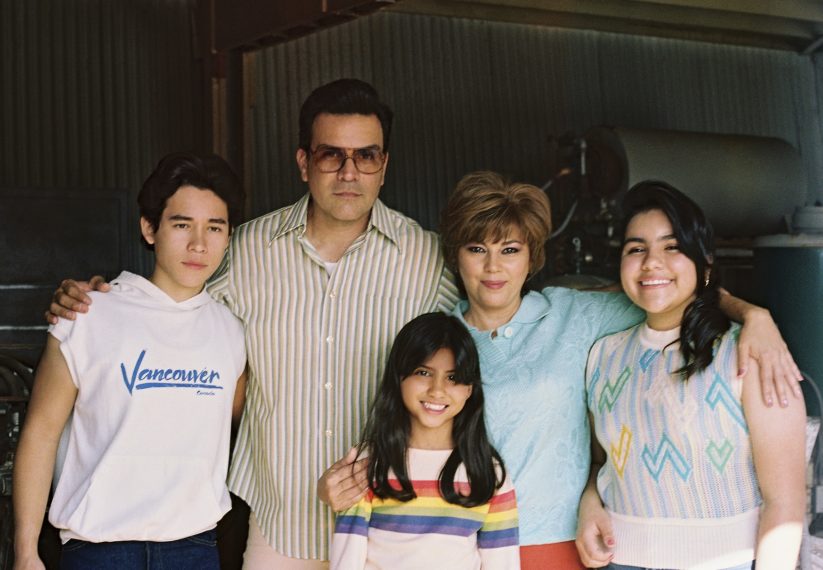
Sara Khalid/Netflix
Beyond Selena, what’s great about the series is how we get to know more about the family, including siblings Suzette and A.B., who are going through their own growing pains.
I realized this is essentially a family drama because they started so young. Selena was on the road full-time in the middle of or after eighth grade. How can you be an active character on the show when your parents are making decisions? And to know her brother [played by Gabriel Chavarria] developed into this incredible music producer who produced all her hit songs, with the exception of the English-language songs…there is a story to be told here.
The same for Suzette [played by Noemi Gonzalez]. They were on the road all the time and the sisters were best friends.
Her family gave her the tools to be the superstar she was on the road. In later episodes, we’ll see her come into her own and make her own career choices. She learned it all during this time through her brother, sister, dad, and mom. I loved that everyone had their own dream and struggled, but came together as a unit to achieve incredible things.
This season is dubbed “Part One.” What can you tell us about how the series was planned out?
This is a two-part series. We wanted to take the time to get to the place of superstar Selena becoming an international icon and being on her way to becoming a mainstream English-language pop star. We want the audience on the bus, seeing those early on crushes and all of this [build up] so by the time we get to that place where she is 23 years old about to take over the world. Then it’s heartbreaking when she doesn’t get to. It will be an emotional journey to get there. Then you’re left wondering what if.
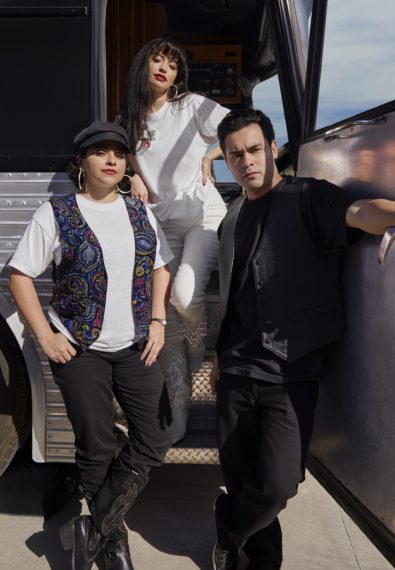
Sara Khalid/Netflix
She left such an amazing legacy. She’s still a Top 5 Billboard artist. So many young men and women look up to her as this incredible Mexican-American role model. That’s the impact she left. I think this two-part series will get that point across.
You have a hand in helping carry on the legacy with this project and through the Zero One production company you’re building.
I was given a chance by John Ridley on American Crime [where Zamora was a writer] who saw my talent and what I could bring to the table. I was grateful for that. [I want to tell stories] that are powerful and can change opinions about Mexican Americans, to show what it is to be Mexican American in a very authentic way.
I wanted to make sure [that after Selena: The Series] that whatever success or leverage or more opportunities comes that I’m able to expand the Latinx representation behind the camera. We need to tell more authentic stories about indigenous and people of Latin American descent — stories that have global appeal to show our stories matter. Not just for us, but for a lot of people who can relate to these universal themes.
Selena: The Series Part One, December 4, Netflix
From TV Guide Magazine
How 'Countdown' Recruited Jensen Ackles to Go Full 'Die Hard'
Countdown boss Derek Haas talks creating the character around Ackles, and the cast teases the “Avengers”-like team of the crime thriller. Read the story now on TV Insider.


